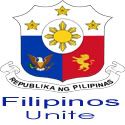This is an attempt to redirect our attention from our country’s hindsight woes to their very source – that is, the Marcos regime.
Finding a way to dig deeper inside Marcos dictatorship is a painful undertaking. The more I learn, the more I abhor the man, who for 21 years of despotic rule, sent our country spiraling into the depth of political and economic chaos. His legacy, to my disgust, further provides the backdrop to other leaders who succeed him. However, I chose to limit my discourse on Marcos and his cohorts for this purpose.
Before his catapult to presidency in 1965, Marcos had created a mythical figure in his own image. In the late 1930s, the young Marcos had faced murder charges in the killing of a political opponent of his father. Convicted in trial court, Marcos appealed to the Supreme Court. Confident of his legal erudition, he conducted his own defense. When he succeeded in having his conviction overturned, a leading newspaper pasted his picture on the front page and declared the handsome twenty-three year old a “public hero.”
Second, much to his own telling, Marcos is a decorated World War II hero. He described his war exploits in Bataan by being captured and subsequently released. He maintained that he “commanded a tough unit of guerillas that made life miserable for the Japanese and aided materially in the liberation of the country. In the process he earned more than a score of decorations, including an American congressional Medal of Honor.”
By and large, Marcos version of his lengthy story was mostly false. “Marcos did win one ribbon during the Bataan campaign, but his claim to guerilla greatness evaporated under historical scrutiny, as did his Medal of Honor and the bulk of the rest of the tale.”
Amazingly, there were those who believed in Marcos, including the then Chief Justice of the Supreme Court, who secured his release from prison despite the weight of the case against him. Ordinary people did not bother to scrutinize his claim twenty years after the war. Despite the fictitious account of his claims, majority of those paying attention were convinced. It paid off. At least to him.
In 1949, as a Liberal, he was elected to the lower house of the Philippine legislature. Ten years later, he ran for the Philippine senate and won. His stint in the Senate became his “forum for building reputations and alliances.” To suit his political needs, “he switched affiliation to the Nacionalistas when the Liberal Macapagal changed his mind about abjuring a second term, and as president of the senate Marcos attacked Macapagal unmercifully.” When he sought to replace Macapagal in 1965 and eventually gained the office he calculatedly aimed for, no one was surprised. The rest is history.
Reference:
Bound to empire. (1992). H. W. Brands. Oxford University Press, Inc. 200 Madison Avenue, New York, New York 10016
TO BE CONTINUED.
Subscribe to:
Post Comments (Atom)







1 comments:
Wow, suddenly I remembered my sentiments during the Edsa revolution. Thank God things turned out well and the era of Marcos had ended.